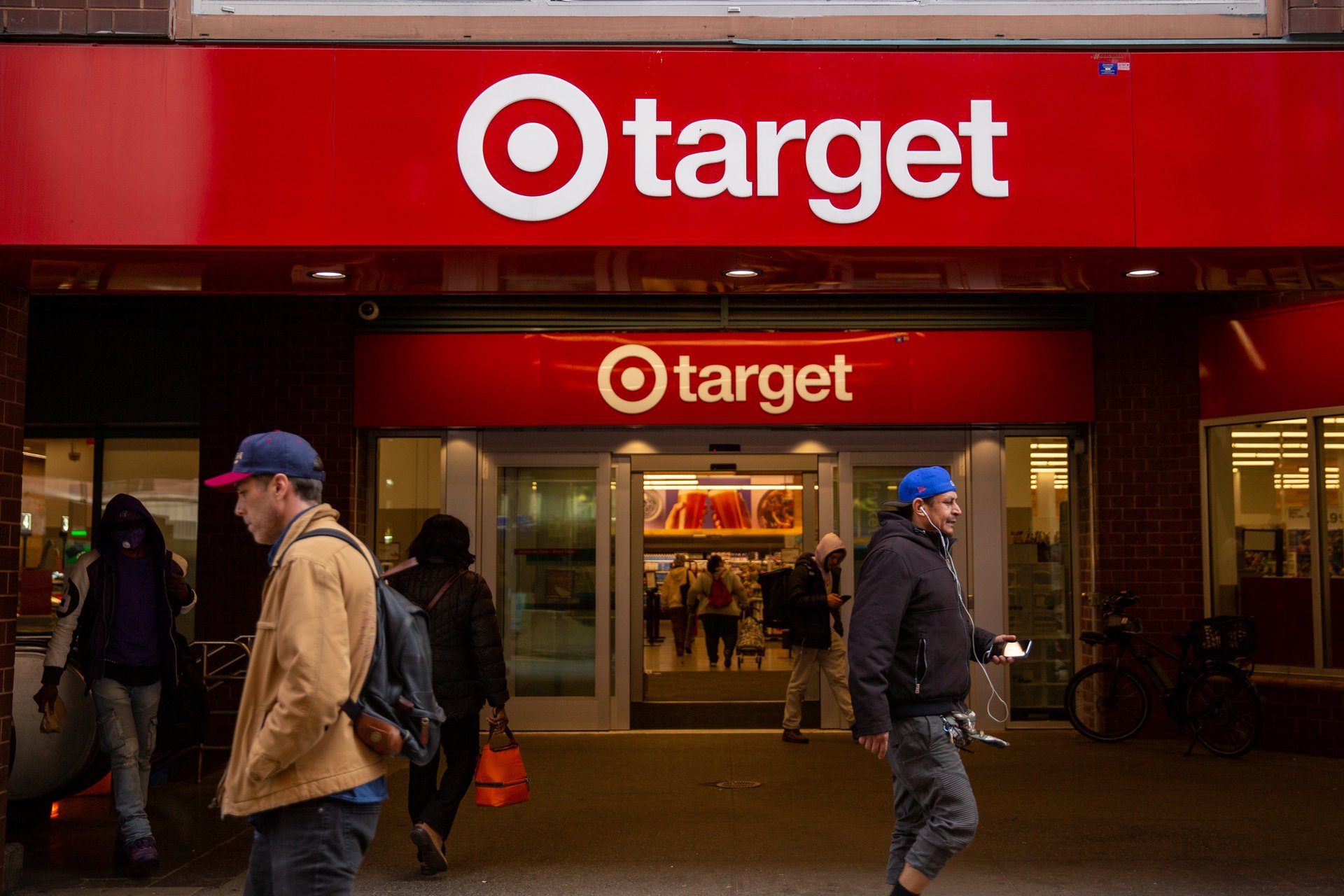Target put DEI on the chopping block. Then fewer customers showed up
Target locations across the U.S. saw a noticeable dip in visits the week following the announcement

Target (TGT) announced it was scaling back its Diversity, Equity, and Inclusion (DEI) efforts one month ago. Now, the retail giant is seeing a rapid decline in store visits.
Suggested Reading
According to Placer.ai, which tracks retail foot traffic, Target locations across the U.S. saw a noticeable dip in visits the week following the announcement. During the week of Jan. 27, traffic declined 4%, followed by an 8.6% drop during the week of Feb. 3. Meanwhile, traffic fell nearly 4% the week of Feb. 10. Placer.ai told Quartz the decrease in foot traffic could be linked to factors such as weather, economic conditions, and other variables.
Related Content
While broader economic factors, such as inflation, may have played a role, the trend suggests that some customers may be responding to the policy change.
Target had previously positioned itself as a supporter of corporate DEI initiatives, making public commitments to inclusive hiring practices, supplier diversity, and community investments. However, the company has faced growing external pressure from critics who argue such initiatives are unnecessary or politically motivated. The rollback marks a sharp shift from the retailer’s earlier stance.
Target’s decision mirrors a larger corporate retreat from DEI programs, which have been reevaluated in response to political and economic pressures. Companies like McDonald’s and Walmart have also adjusted their DEI strategies in recent months. Meanwhile, retail giants like Costco have held firm. Placer.ai data shows that in the weeks following Costco’s (COST) announcement that shareholders would uphold the company’s DEI programs, visits increased 5.7% during the week of Feb. 3 and 4.6% during the week of Feb. 10.
Adding to Target’s challenges, in early February, the company’s shareholders sued the retailer, alleging that it defrauded investors by concealing the dangers tied to its diversity initiatives. Later that month, the state of Florida filed another lawsuit against Target, accusing the company of obscuring the financial risks tied to its DEI efforts.
Target has yet to release additional details about the specific changes it plans to implement, but the initial reaction suggests that the shift could have lasting effects. Alongside its rollback in DEI plans, the company said it would remove the sale of LGBTQ+ merchandise, limiting selections to its online marketplace. In Nov. 2024, the company posted one of its biggest earnings misses in years, prompting its stock to plummet over 20%.
Whether the decline in foot traffic is temporary or a sign of a deeper shift in consumer sentiment remains to be seen. A separate Placer.ai report noted that shoppers linger at rivals like Walmart (WMT), with over 20% of shoppers spending more than 45 minutes at some locations, compared to roughly 17% who spend that time in a Target.